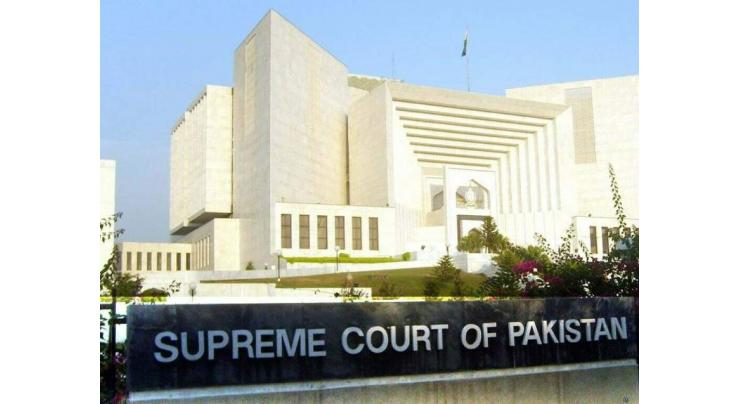
SC To Take Up Suo Moto Case On Vawda’s Press Conference Today
Abdullah Hussain (@Abdulla99267510) Published May 17, 2024 | 11:21 AM

LA SC three-member bench led by Chief Justice Qazi Faez Isa and comprising Justice Irfan Saadat and Justice Naeem Akhtar will take up the case.
ISLAMABAD: (UrduPoint/UrduPoint / Pakistan Point News-May 17th, 2024) The Supreme Court of Pakistan is set to hear a suo moto case concerning Faisal Vawda’s recent press conference today (Friday).
A SC three-member bench led by Chief Justice Qazi Faez Isa and comprising Justice Irfan Saadat and Justice Naeem Akhtar will take up the case.
The Supreme Court took the suo moto notice in response to Vawda’s press conference held two days ago.
Addressing the press conference, Vawda criticized judges of the Islamabad High Court.
This issue was also discussed during a hearing on the NAB amendments case, where Justice Athar Minallah expressed his discontent with Vawda’s comments to the Attorney General.
During the press conference, Vawda demanded evidence of alleged interference in the judiciary, stressing that the court requires proof to proceed with cases. He claimed that his reputation had been damaged and warned against tarnishing the reputation of Pakistan’s institutions.
Vawda, a former Federal minister, questioned the dual nationality status of judges, drawing a comparison to the prohibition on politicians holding dual nationality.
He expressed his confidence in the integrity of Justice Mansoor Shah, Justice Ayesha Malik, and Justice Athar Minallah, describing Minallah as a principled judge who avoids inappropriate conduct.
Vawda also remarked that Justice Athar Minallah is impartial, does not meet with political representatives secretly, and does not make decisions for media attention. He emphasized Minallah’s diligence and commitment to his role.
Furthermore, Vawda mentioned a press release issued by Justice Babar Sattar on a public holiday, and a letter he wrote on April 30 to the judges of the Islamabad High Court. He raised concerns about transparency under Article 19A, arguing that the lack of information exacerbates ambiguity.
He stressed the necessity of presenting evidence regarding actions taken before individuals became judges, suggesting that questions will arise if no records are available.
Related Topics
Recent Stories

Govt allocates subsidies for Transport, Food, and Agriculture in Next Budget

PM vows to follow China’s model of success

PTI activist Aliya Hamza re-arrested in May 9 case

Realme C63's Rumored Superior Features Spell Trouble for Vivo Y17s

Madiha Imam condemns online harassment over husband's religion

Sarim Burney accused of smuggling 20 babies to US over past year

Govt tells SC Imran Khan not in solitary confinement

SC resumes hearing on appeals over NAB law reversal

Break the Bias, Own the Stage: The Infinix GT 20 Pro Empowers Women to Conquer ..

Hear From the Best: Top Pakistani Tech & Lifestyle Content Creators Share Their ..

32 MoUs inked at Pakistan-China Business Forum in Shenzhen

ICC T20 World Cup 2024: Pakistan, USA to take on each other today
More Stories From Pakistan
-

PM vows to follow China’s model of success
10 minutes ago -
Central Ruet-e-Hilal Committee to meet Friday for Dhul Hijjah moon sighting
16 minutes ago -
July 5 fixed to indict CM, KP in audio case
16 minutes ago -
National Law Moot competition concluded at Quaid-i-Azam University
26 minutes ago -
"Laptops for All" scheme to be introduced; Rana Mashhood
26 minutes ago -
DPO Mardan reviews crime control efforts
26 minutes ago
-
Municipal officers directed cleanliness on Eid days
26 minutes ago -
Eid ul-Azha slaughtering services' rate spark mixed reaction from public, butchers
26 minutes ago -
DC Jhang prepares for Digital Agriculture Statistics drive
26 minutes ago -
Gilani urges nation to prioritize food safety on World Food Safety Day
26 minutes ago -
Pakistan, China sign MoUs to enhance collaboration in agriculture, digital, green economy
36 minutes ago -
DC directs magistrates to ensure display of price list of essential items in all markets
36 minutes ago
